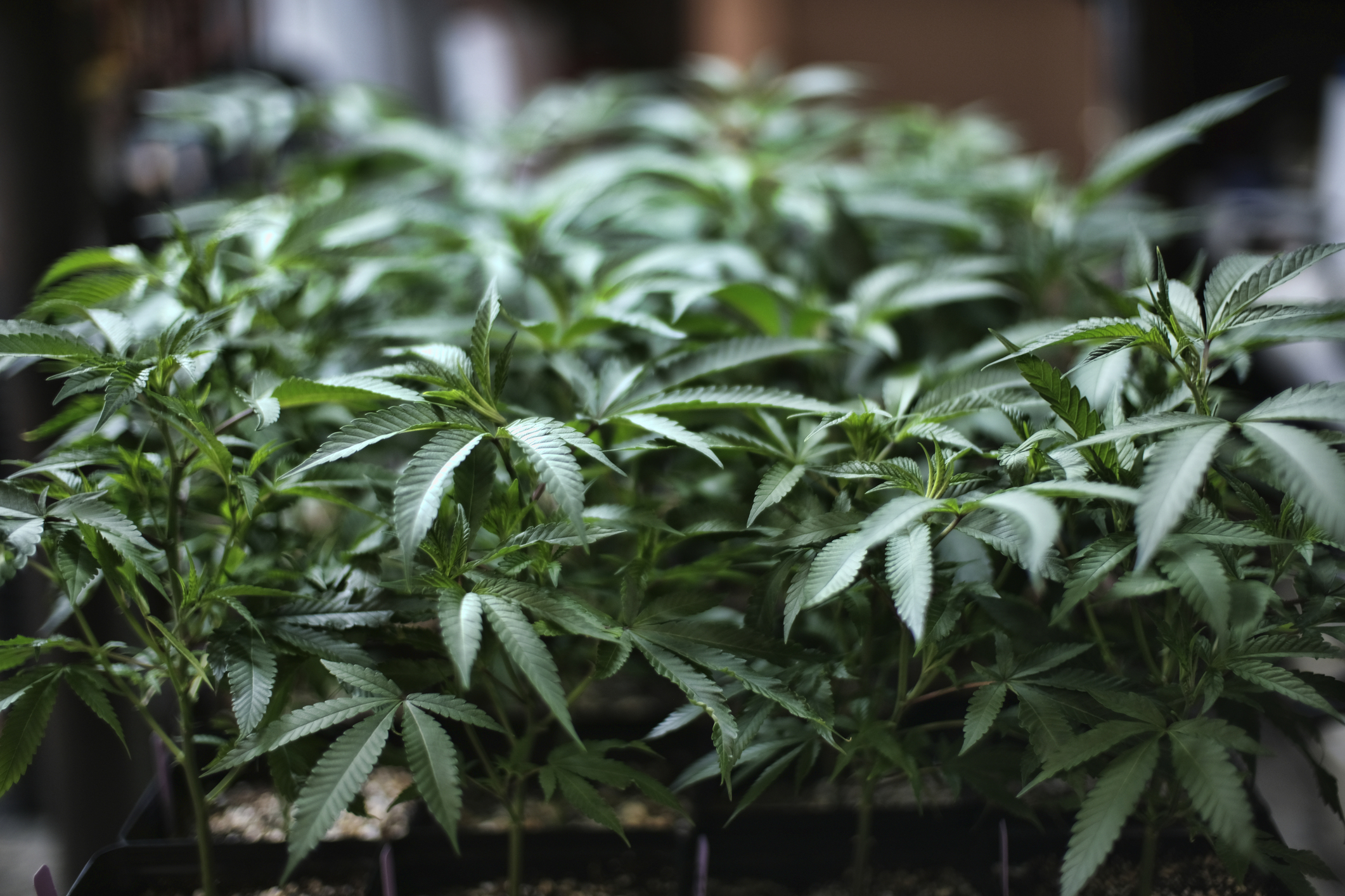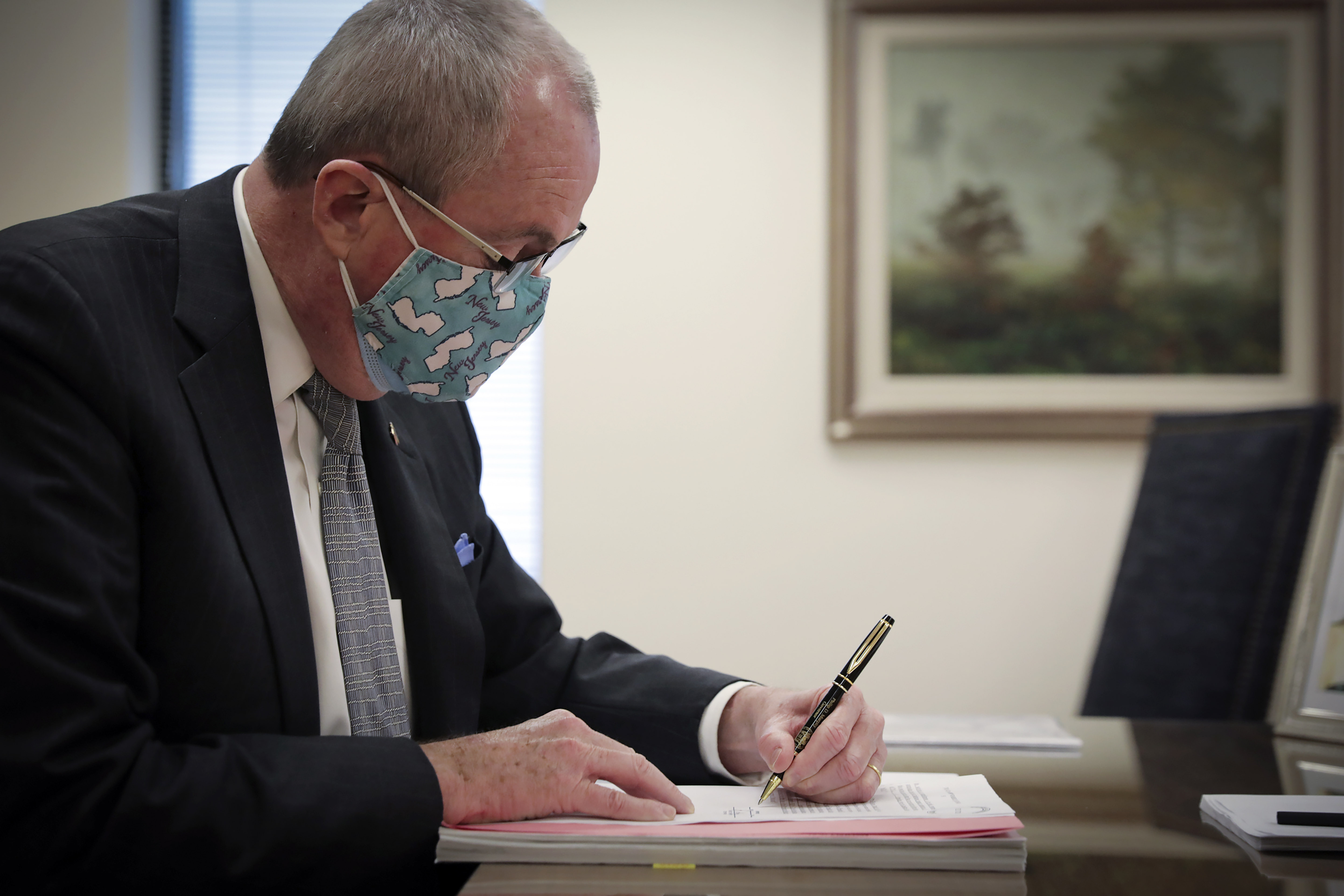Before New Jersey legalized recreational marijuana last year, black market dealers have been selling weed in secret --- but right across the street from City Hall in the state's capital, one businessman has been openly challenging the law.
Known as the NJWeedman, Edward Forchion is upfront about his underground weed business. He opened a storefront on E State Street in Trenton where he sells everything from flowers, cannabis concentrates and edibles. With the state still months away from actually opening up its marijuana marketplace, NJWeedman's Joint is one of the only places defying the government's rollout.
"I say I'm like the people's champ right now...the Robinhood reefer," Forchion said.
The 56-year-old has been in the marijuana business for years, with his first arrest dated back to 1997. Forchion has faced several drugs-related arrests and charges since, but now that marijuana is legal, his past convictions have only strengthened his drive to challenge the new regulatory system.
Asked if he's daring police to arrest him, Forchion says he's not daring cops but rather politicians. "I believe the reason why I'm not being arrested is because of my past success," he said.
Get Tri-state area news delivered to your inbox. Sign up for NBC New York's News Headlines newsletter.
Under new guidelines released by state Attorney General Gurbir Grewal last month, police are no longer allowed to detain or arrest people for possessing or distributing small amounts of marijuana. Being under the influence of marijuana or possessing related paraphernalia are no longer crimes for people 21 and over.
The new Cannabis Regulatory Commission has to set up other rules and dole out licenses for storefronts like Forchion's to legally operate, and licenses have been tightly capped.
"I have said there should be thousands of me like this all over the state. Instead, the governor's plan is to license 37 places, big corporations, to grow marijuana and everyone else is supposed to buy from them," Forchion said.
The number of licenses for cultivators will be limited for two years. The state Senate was pushing for no limits, but the Assembly wanted the caps.
Also under the bill signed by Gov. Phil Murphy last month, the Cannabis Regulatory Commission will be able to levy an excise tax, the amount of which will depend on the cost per ounce of cannabis. Seventy percent of the proceeds will go to areas disproportionately affected by marijuana-related arrests. Black residents were likelier — up to three times as much — to face marijuana charges than white residents.
Forchion says he's going to keep buying from suppliers he chooses and sell on his own term unless the government includes sellers like him in the legal market.
"You don't put a sign up and say 'no negros need to apply'. They don't do that. But you need 2 million for this. You need this. You need to go to before this board. You need to get approved. These are all these obstacles to prevent the ones they don't want in it," he added.
"If they don't include us, we're still going to exist. I'm not gonna go 'oh well legalzation's here. The white guys are allowed to sell weed now. I guess I'll stop.' That's never gonna happen."
For now, sales stay the black market—and Forchion is cashing in big. His shop averages about 200 customers a day and even more on the weekend.



